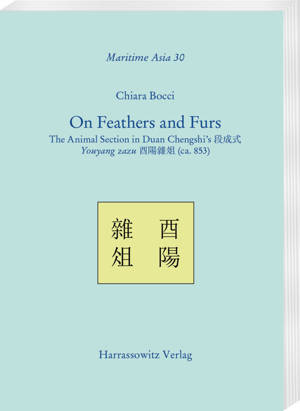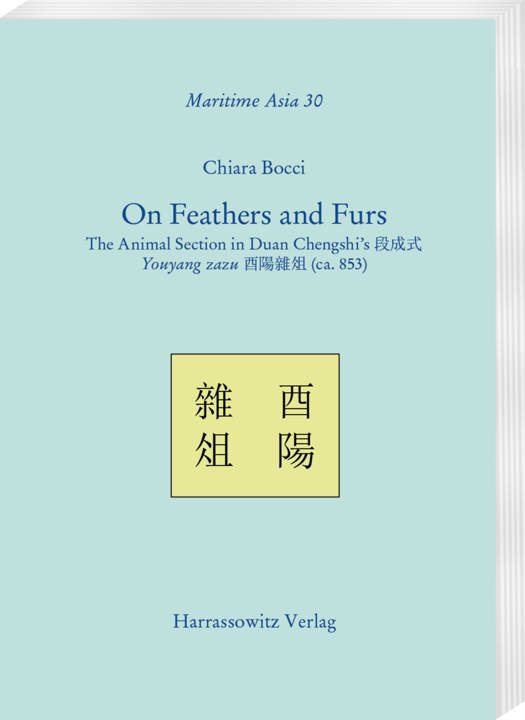
- Afhalen na 1 uur in een winkel met voorraad
- Gratis thuislevering in België vanaf € 30
- Ruim aanbod met 7 miljoen producten
- Afhalen na 1 uur in een winkel met voorraad
- Gratis thuislevering in België vanaf € 30
- Ruim aanbod met 7 miljoen producten
Zoeken
On Feathers and Furs
The Animal Section in Duan Chengshi's Youyang Zazu (Ca. 853). an Annotated Translation
Chiara Bocci
€ 139,45
+ 278 punten
Omschrijving
One of the great literary achievements of the Tang dynasty, the Youyang zazu, or "Miscellaneous Morsels from Youyang", has captivated the attention of those Chinese and western scholars, who appreciated its erudition, originality, and the author's outstanding storytelling talent. The aim of this book is to provide a complete annotated translation of its section on birds and quadrupeds (Yu mao pian), one of the less studied so far, although certainly a most fascinating part. In chapter sixteen, all of the author's main interests seem in fact to congregate and come to light brilliantly: the natural world and its wonders, but also foreign lands and goods, rare books, strange anecdotes (sometimes from hearsay), and exotic names or curious expressions, as well as rhymes and popular sayings, which he recorded with utmost delight and a good portion of humor. It is precisely the linguistic aspect, the love of words of the philologist Duan Chengshi, which posed the biggest challenge during the translating process. In some cases, it has been possible to identify the object, in other instances, only tentative suggestions have been made. This study should contribute to extend the knowledge about this work, about its eclectic author, and the way a Chinese literate looked at the world during the Tang dynasty.
Specificaties
Betrokkenen
- Auteur(s):
- Uitgeverij:
Inhoud
- Aantal bladzijden:
- 227
- Taal:
- Engels
- Reeks:
- Reeksnummer:
- nr. 30
Eigenschappen
- Productcode (EAN):
- 9783447117593
- Verschijningsdatum:
- 8/12/2021
- Uitvoering:
- Paperback
- Formaat:
- Trade paperback (VS)
- Afmetingen:
- 171 mm x 18 mm
- Gewicht:
- 4576 g

Alleen bij Standaard Boekhandel
+ 278 punten op je klantenkaart van Standaard Boekhandel
Beoordelingen
We publiceren alleen reviews die voldoen aan de voorwaarden voor reviews. Bekijk onze voorwaarden voor reviews.








